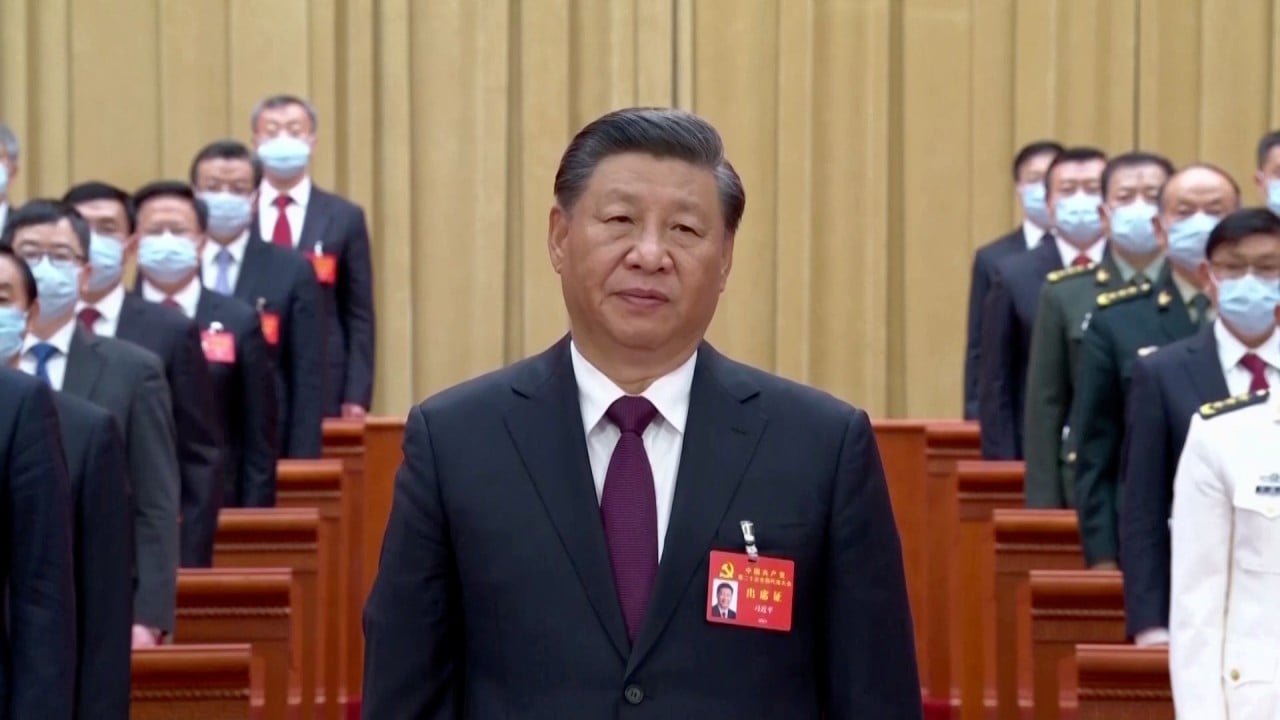
Chinese stocks foment recovery as JPMorgan says buy amid elevated bets among short-sellers
- Short bets against top stocks in Hong Kong surged on Monday and remained elevated despite more than a 35 per cent drop in the Hang Seng in 2022
- JPMorgan says the latest sell-off is ‘disconnected from fundamentals’ and presents opportunity for investors to accumulate
The Hang Seng Index slumped as much as 1.5 per cent below the 15,000-level, before ending with a 0.1 per cent loss at the close of trading on Tuesday. The Tech Index surged 3 per cent. This followed a sell-off on Monday when the city’s benchmark index crashed 6.4 per cent, the most since the 2008 global financial crisis.
The slump on Monday was “disconnected from fundamentals”, JPMorgan Chase’s market strategists led by Marko Kolanovic said in a note published on the day. “We believe this is a good opportunity to add, given an expected growth recovery, gradual Covid reopening, and monetary and fiscal stimulus.”
China’s bank regulator issued a statement to affirm its commitment to preserve financial stability in the capital markets, in keeping with the spirit of the Communist Party’s recent congress.
Are China stocks ready for 2015-style surge? Look for margin trading signal
JPMorgan forecast the MSCI China Index will more than double to 116 points from 53. Goldman Sachs, which has scaled back its forecasts a few times this year, now sees the index reaching 69 by year-end. The gauge, which tracks 717 stocks at home and overseas worth US$2.3 trillion, is trading at 8.5 times earnings, the cheapest in at least a decade.
China could gradually relax its zero-Covid policy after March next year, and policy implementation is expected to be more efficient as personnel-related issues in the Communist Party have been settled, Goldman Sachs said in a report on October 23.
Shorts, or bets on falling stock prices, remained extended, according to market data. The number of shorts on Alibaba Group Holding jumped by seven times to 21 million shares worth HK$1.34 billion on Monday. That is equivalent to a two-week high of 4.7 per cent of all short bets in Hong Kong.
The ratio of shorts on Tencent stock jumped to 5.1 per cent on Monday, the highest in four weeks, while those on the Tracker Fund also approached a one-month high of 18.4 per cent on October 21.
Open interest on the most active futures contract on the Hang Seng Index, or the outstanding number of unsettled contracts, more than doubled over the past month, according to Bloomberg data. That indicates higher demand for protection from further market losses.
“The current downtrend sees no respite amid China’s slowing economic growth and rising rates in the US,” said Kenny Ng, an equity strategist at Everbright International. “Foreign funds now find US equities more attractive and many of them are getting out of the city’s market.”
“China remains a source of near-term risk as it attempts to resolve issues related to Covid-19 and the property market,” Mark Haefele, chief investment officer at UBS Wealth Management, wrote in a report on October 20. “Trying to pick a bottom [in global markets] is a good way to lose a finger.”
Chinese stocks look to year-end history to halt rout as Daiwa sees surprises
“It is still a contrarian call at this point because market expectation of reopening is coming down,” said Wong in Hong Kong. “We do believe that it is going to happen eventually, and hopefully within the next six months. And as usual, equities will move faster than fundamentals because of investor expectations.”



